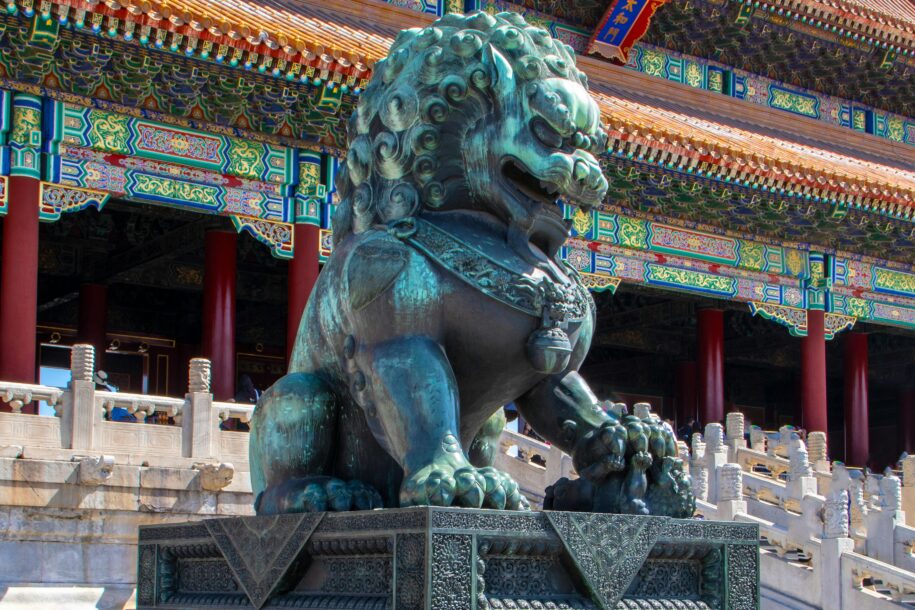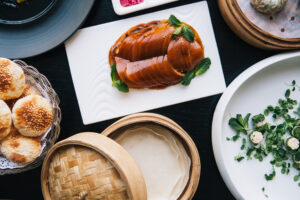Almost all of China’s great cuisines have arisen in regions of abundance. The Yellow River Delta gave rise to Shandong cuisine, the Yangtze River Delta gave rise to Huaiyang cuisine and the Pearl River Delta gave rise to Cantonese cuisine. Even Sichuan cuisine, the fourth of China’s Four Great Culinary Traditions, arose in an area that, despite being far from the coast, is known as The Land of Plenty.
But what does Beijing have in abundance? Apart from dates and peaches in the mountains, cabbages and leeks in the fields, and persimmon trees in people’s courtyards, Beijing has traditionally produced comparatively little fresh food. What’s more, Beijing’s long winters mean there are many months where nothing grows at all.
So why then is there no shortage of great food in the capital? The reason is precisely because it’s the capital and has been for over 700 years.
Over that time, Beijing has not only been the political center, but also the center of Chinese culture. The city has been packed with people, ideas, goods and food from all over the country, and the food customs that have accumulated here capture the culture, history and psychology of the nation. For this reason, looking at how Beijingers cook and eat offers a glimpse into the heart of China.
Probably the most distinctive feature of Beijing’s culinary culture is the strong influence of imperial cuisine, the food of the Forbidden City, and almost every dish you’ll try on the Old Beijing Dinner Tour and Hutong Breakfast Tour – whether in a restaurant, home, or street stall – has some link to the palace kitchens.
Imperial cuisine itself draws influence from the the culinary traditions of those who occupied the palace: the Mongol rulers of the Yuan Dynasty (1217-1368), the Ming Dynasty (1368-1644), which mainly introduced dishes from Shandong and Huaiyang cuisines, and the Manchu rulers of the Qing Dynasty (1644-1911).
Imperial officials also selected hundreds of regional chefs to work in the palace kitchens and, for centuries, these chefs served up the best food from all over China as they competed for the emperor’s favor. Visiting nobles also brought with them their own cuisines and household chefs when they were stationed in the capital. This, alongside many dishes and snacks that made their way up from the streets and into the palace on merit, contributed to the quality and diversity of imperial cuisine.
As it was being influenced from outside, this imperial cuisine in turn influenced cuisine in every corner – and every hutong – of the capital, through both imitation by restaurants on the peripheries of the palace, and through the release of chefs from the imperial kitchens at the fall of each dynasty.
In China, food is considered an art form and books on cooking have been included in the same category as music, calligraphy and painting since ancient times. This is especially apt in Beijing, where each dish carries culture and tells a story of Silk Road travelers, famous battles, imperial intrigue or ingenious invention that is passed down at every meal.
So alongside a visit to the wall that once held invaders at bay, the palaces that once housed generations of emperors, and the museums full of relics of the past, we hope you’ll have the opportunity to explore the aspect of Beijing’s culture that is still alive in the kitchens and on the plates of the city’s people and is still celebrated at every meal: food.
We’d love to take you for a wander through the city’s hutong neighborhoods and show you all the local dishes hidden in plain sight. On the way, we’ll share the stories of how the dishes built the capital and how the capital shaped the dishes. We think exploring Beijing’s food is the best way to understand the city. And did we mention? It’s also outstandingly delicious!
To book a food tour in Beijing, go to our calendar or email us at info@untourfoodtours.com. We look forward to eating with you!




Leave a Reply